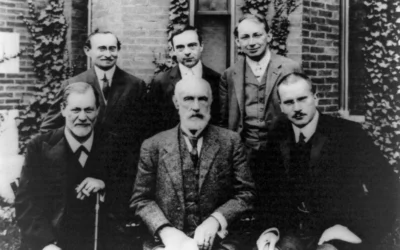 Encouraging Physicians to Seek Mental Health Support
Encouraging Physicians to Seek Mental Health Support
The stigma surrounding mental health in the medical community is a significant barrier preventing physicians from seeking the support they need. Despite the high prevalence of mental health challenges among physicians, including burnout, depression, and anxiety, there remains a pervasive culture of silence and shame around these issues.
The expectation for physicians to be invincible, to prioritize their patients’ well-being above their own, and to maintain a facade of perfect mental health is deeply ingrained in the medical profession. This unrealistic and harmful narrative perpetuates the idea that seeking help for mental health concerns is a sign of weakness or incompetence.
As a result, many physicians suffer in silence, fearing that admitting to mental health struggles will jeopardize their careers, damage their reputation, or lead to judgment from colleagues and patients. This fear of stigma and discrimination prevents physicians from accessing the support and resources they need to maintain their own well-being and provide high-quality care to their patients.
We Have a Clinician who Treats Physician Burnout at Taproot Therapy Collective Check Him out Here
The Impact of Mental Health Stigma on Physicians
The stigma surrounding mental health in the medical community has far-reaching consequences for physicians and the healthcare system as a whole. When physicians feel unable to seek help for their mental health concerns, it can lead to a range of negative outcomes.
Untreated mental health issues can have a profound impact on physicians’ personal and professional lives. They may experience decreased job satisfaction, impaired decision-making abilities, and reduced empathy towards patients. The constant pressure to maintain a facade of perfect mental health can lead to feelings of isolation, guilt, and shame, further exacerbating mental health challenges.
The consequences of untreated mental health issues among physicians extend beyond the individual level. When physicians are struggling with their own mental health, it can affect the quality of patient care they provide. Burnout, depression, and anxiety can lead to decreased clinical performance, increased medical errors, and lower patient satisfaction.
Moreover, the stigma surrounding mental health in the medical community can contribute to a culture of silence and fear, where physicians are reluctant to speak out about their own experiences or advocate for change. This can perpetuate a cycle of unaddressed mental health concerns and prevent necessary systemic changes from taking place.
Breaking the Stigma: Strategies for Change
Breaking the stigma surrounding mental health in the medical community requires a multi-faceted approach that involves individual physicians, healthcare organizations, and the broader medical education system.
One key strategy is to normalize conversations about mental health within the medical community. This involves creating safe spaces for physicians to openly discuss their experiences, challenges, and struggles without fear of judgment or repercussions. Encouraging physicians to share their stories and providing platforms for peer support can help reduce feelings of isolation and shame.
Healthcare organizations have a crucial role to play in breaking the stigma. By implementing policies and practices that prioritize physician well-being and destigmatize mental health concerns, organizations can create a culture that values and supports the mental health of their healthcare providers. This may involve offering confidential mental health services, promoting work-life balance, and providing training and resources on stress management and resilience.
Medical education institutions also have a responsibility to address the stigma surrounding mental health. Incorporating mental health education and self-care strategies into medical school curricula can help future physicians develop the skills and knowledge needed to prioritize their own well-being throughout their careers. Emphasizing the importance of seeking help and normalizing conversations about mental health from the earliest stages of medical training can help shift the culture and reduce stigma.
Encouraging physicians to seek mental health support requires a multi-pronged approach. This may involve providing easily accessible and confidential mental health services, such as employee assistance programs or teletherapy options. Offering resources and information on mental health support, including lists of mental health professionals who specialize in working with physicians, can make it easier for physicians to take the first step in seeking help.
It is also essential to address the systemic barriers that prevent physicians from seeking mental health support, such as concerns about licensure, credentialing, and professional advancement. Advocating for policies and practices that protect physicians’ privacy and confidentiality when seeking mental health treatment can help reduce fears of discrimination and stigma.
Success Stories: Physicians Who Have Benefited from Mental Health Support
Sharing success stories of physicians who have benefited from mental health support can be a powerful way to break down stigma and encourage others to seek help. When physicians see their colleagues openly discussing their mental health journeys and the positive impact therapy has had on their lives, it can inspire them to take the first step in prioritizing their own well-being.
These success stories can highlight the transformative power of therapy in helping physicians overcome burnout, manage stress, and rediscover a sense of purpose and fulfillment in their work. They can also showcase the resilience and strength of physicians who have faced mental health challenges and come out on the other side with renewed energy and perspective.
By sharing these stories, we can normalize the experiences of physicians who have struggled with mental health and provide hope and inspiration to others who may be hesitant to seek help. These stories can also serve as a reminder that seeking mental health support is not a sign of weakness, but rather a courageous and proactive step towards personal and professional well-being.
We Have a Clinician who Treats Physician Burnout at Taproot Therapy Collective Check Him out Here
Types of Therapy
























0 Comments